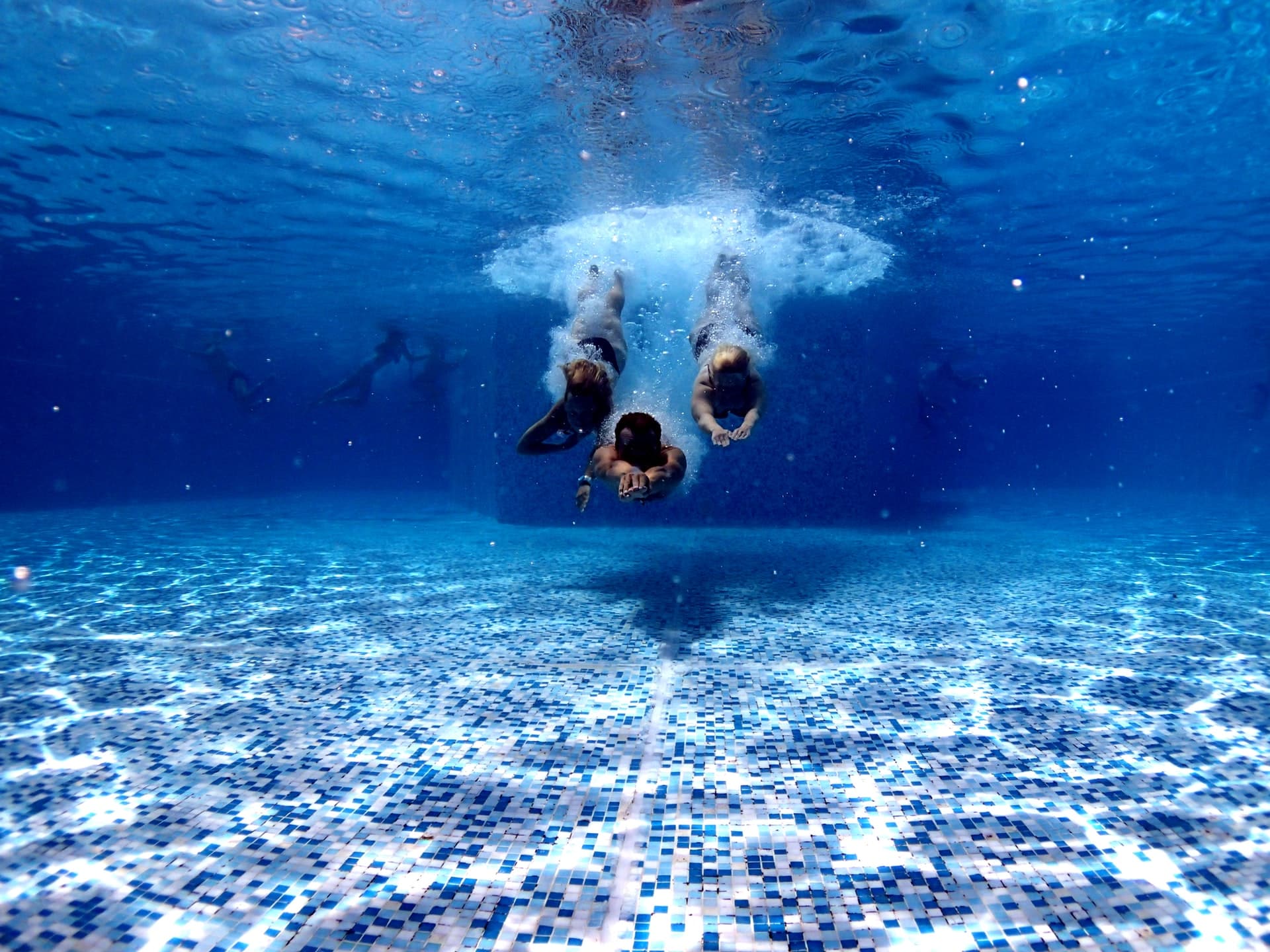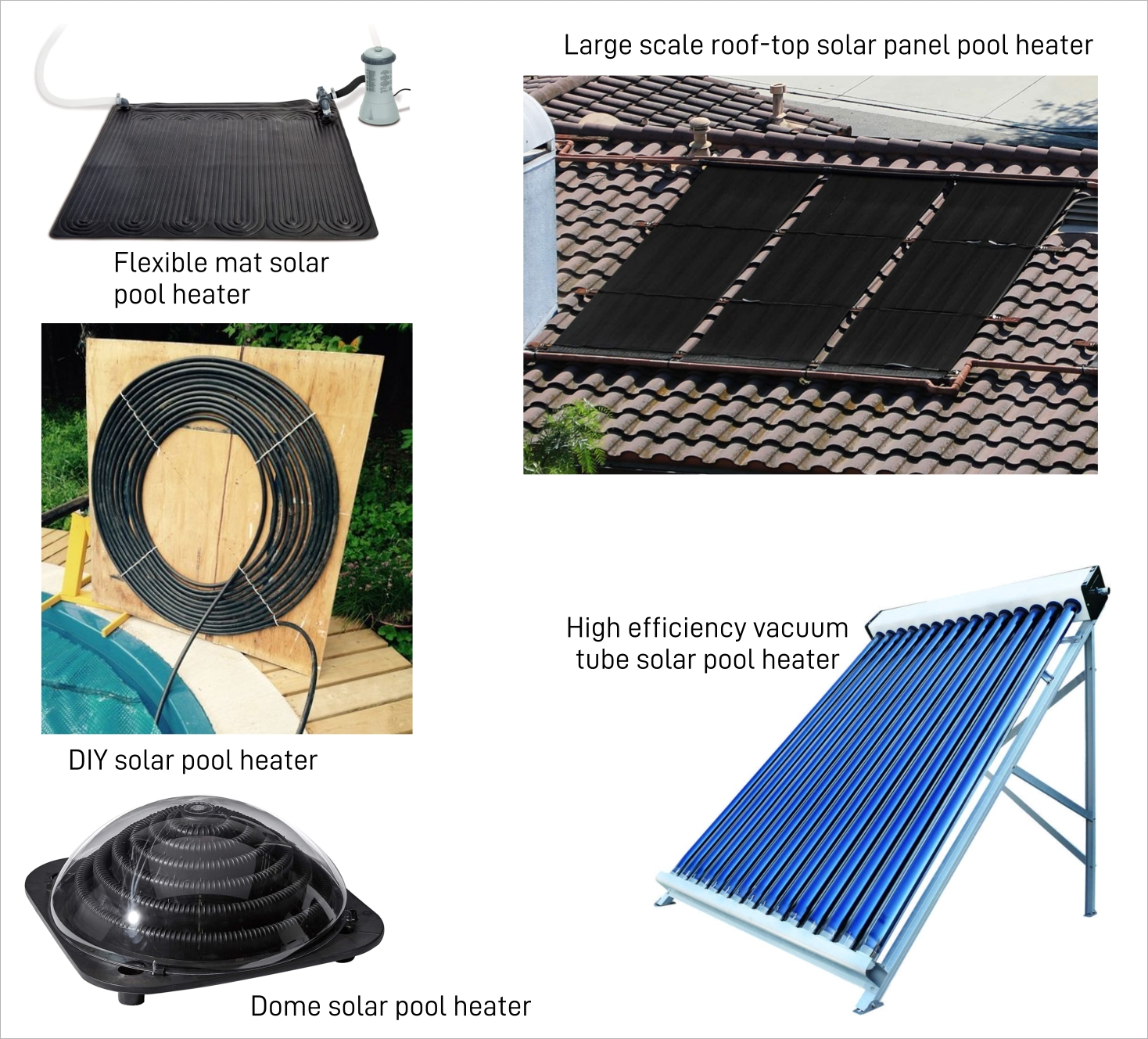
Heat Pump vs Solar Pool Heating

Swimming pool heating is big news. Pools are typically one of the biggest single investments homeowners make in their homes. Consequently, getting the most value out of them is a no-brainer, especially in cooler climates.
So, this brings us back to the big news. If you can raise the temperature of your pool water by 10° you can realistically add months to your swimming season. Needless to say, this is enormous added value on your investment, not to mention your family’s entertainment and general lifestyle quality.
As attractive as this may sound it does pose one thorny question. How do you heat the pool in an efficient and cost-effective way that doesn’t cause more headaches than balmy swimming sessions?
Heat Pumps and Solar Pool Heaters: The Main Differences
Fortunately for the average swimming pool owner, there are a couple of cost-effective and efficient ways of doing this. Probably the most attractive of these are heat pumps and solar pool heating. And right there is another bunch of thorns. Which one of the two is best?
Heat pumps and solar heaters, even a do-it-yourself solar pool heater, do the same job in very different ways. Both have pros and cons and it generally takes a bit of figure juggling to decide which one will best suit your needs. Let’s check out the main differences between the two:
Electric Heat Pump Pool Heaters
Heat pumps can be thought of as reverse air conditioners. A conventional air conditioner absorbs heat inside a room and transfers it outside to be shed into the atmosphere. A heat pump absorbs heat from the air outside and uses it to heat the pool water in its internal mechanisms.
Basically, either the existing pool pump or a dedicated pump forces water from the pool through the heat pump. Once the heat pump has heated the water it is returned to the pool in a continuous cycle.
An electric heat pump pool heater does use electricity but is definitely more efficient than electric resistance pool heaters.

Solar Pool Heaters
Unlike the heat pump pool heater, solar pool heaters use no electrical energy to heat the pool water. They rely on the thermal qualities of solar radiation to heat pool water in a series of tubes or pipes. These tube arrangements are known as solar collectors.
Here are a few of the common types of solar pool heaters.

A solar pool heater’s overall operation is similar to pool heat pumps. Cool water from the pool is pumped into the collectors where it is heated by solar radiation. The hot water is then returned to the pool, replaced by cool water and the process starts over again.
Pros and Cons of Electric Heat Pumps and Solar Pool Heater Types
Although both types of pool heater do the same job, they both have distinct advantages and disadvantages. Here is a direct comparison of the relevant pros and cons of each type.
Electric Heat Pumps
Pros
- Can operate day or night in all light conditions.
- Heats faster than a solar system.
- Lower upfront installation cost.
- Unobtrusive and relatively easy to move.
Cons
- Far less cost-effective over time.
- Requires more maintenance.
- Repairs are more expensive.
Solar Pool Heater Types
Pros
- No operational costs outside of the pump’s electricity consumption.
- Requires less maintenance than a heat pump.
- Routine repair and maintenance costs are lower than a heat pump.
- Easy to build DIY versions.
- Larger range of off-the-shelf models to suit all budgets and pool types.
Cons
- High initial cost.
- Slower heating times.
- Can only heat your pool during daylight and under optimal sunlight conditions.
- Larger installations are visually unappealing and very difficult to re-locate.
Cost Implications
Let us consider the average installation and running costs of these two pool heater types.
Installation
Heat pumps
A pool heat pump requires little additional plumbing and control mechanisms. The average cost of pool heat pumps installation is between $2,000 and $4,500.
Solar pool heating
A permanent solar pool heater takes a lot of effort and additional hardware to install. Depending on the heater type chosen and the pool size, the average installed cost of solar pool heating is between $1,500 and $11,000.
Heat Pump vs Solar Pool Heaters Running Costs
Heat pumps
Pool heat pumps are the most efficient electrically powered pool heaters. However, they still cost between $50 and $100 a month to run. This equates to a yearly running cost of $600 to $1,200 per year.
Solar pool heating
Solar heaters only really use electricity to pump the water through the system. Consequently, the average roof-top solar heating system uses around $30 a month or $360 a year to heat your pool.
Combination Systems
We have spent some time comparing the benefits and downsides of solar and heat pump pool heating. But what if you combine the two? Consider this, your solar pool heater warms the water during the day. Then your heat pump takes over after dark, would that not be uber-efficient?
To be honest, yes and no. The truth is, depending on the size of your pool and your specific requirements, combination systems can be highly beneficial.
Optimizing On Your Pool Heating
Whichever heating system you choose, there are several ways to boost their efficiency and further lower operating costs.
Pool covers
A pool cover prevents pool heat from radiating out of your pool water. These simple, low-tech devices can play a major role in helping your heating system stay ahead of the game.
Solar pool rings
A lot of folks frown on pool rings as a supplemental source of pool heating. The truth is they actually work. In addition, if you use enough of them they will also reduce water loss through evaporation.
Floating solar panel heaters
These are essentially mini roof-top solar pool heating panels. They are expensive but are one of the more effective ways to supplement conventional pool heating efforts.
The Wrap-Up
At the end of the day, the choice of solar heaters or heat pumps will be based on personal preference and the specifics of the pools themselves. Heat pump heaters cost less to install, but more to run, while the opposite is true of solar heaters. Heat pump heaters heat quicker, but solar heaters provide more sustainable results in the long run.
Both have benefits and shortcomings and ultimately your pool, budget, and individual needs would probably be the deciding factors.
4 Comments
-
Gina Gin
I would like to express my appreciation for the heat pump with heater that you provided for my swimming pool. This has been a great addition to my backyard and I am now able to enjoy swimming in the pool even during cooler days.
The heat pump has been easy to use and has allowed me to maintain the perfect temperature for my pool. I have also found it very convenient to be able to adjust the temperature from inside the house using the control panel.
-
Anonymous
Great post! When it comes to heating your pool, the choice between a heat pump and solar pool heating depends on various factors. Heat pumps are efficient and reliable devices that extract heat from the air and transfer it to the pool water, providing consistent warmth throughout the swimming season. They are particularly useful in regions with moderate climates or for those who prefer a hassle-free heating solution.
On the other hand, solar pool heating relies on harnessing the sun’s energy to warm the water. It is an eco-friendly option that can significantly reduce operating costs over time, especially in areas with abundant sunlight. Solar systems require an initial investment but offer long-term savings and a greener way to heat your pool.
Ultimately, the choice between a heat pump and solar pool heating depends on your location, budget, environmental considerations, and personal preferences. Assessing these factors will help you determine the most suitable option for your specific circumstances, ensuring you can enjoy comfortable swimming temperatures while minimizing energy consumption and costs.
-
Ryan Gomez
I wanted to express my appreciation for the insightful article you recently shared regarding the comparison between heat pump and solar pool heating systems. The information provided was both comprehensive and valuable.



Steven Keller
I am installing a new small pool. 12×20. I am planning on a heatpump heater. I am also installing solar electric panels. Is there any reason to also add water solar panels for the pool